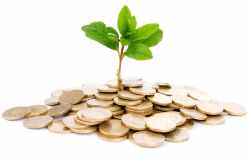
As 2014 comes to a close, the European Environment Agency (EEA) looks back at some of the interesting findings from its work throughout the year.
In 2014 the EEA had a special focus on green economy and resource efficiency, looking at how Europe’s economy can generate increasing prosperity while maintaining the natural systems that sustain us. New innovations could help the EU make such a transition, the EEA found.
Higher environmental standards are major drivers of innovation in Europe, giving businesses a ‘first-mover’ advantage both at home and worldwide, according to an in-depth study of green economy policies. The environmental goods and services sector employed 4.2 million people in 2011, according to recent data. This represents a 44 % increase since 2000, far exceeding the European average of 7% jobs growth during the same period.
Despite these encouraging signs, EEA analysis throughout 2014 showed that the EU still has a long way to go in its mission to ‘live well, within the limits of the planet’. Around eight times as much raw material (by weight) is brought into the EU than exported. Extracting and transporting these resources have major environmental and economic costs, so Europe needs to use these precious resources more efficiently and increase recycling. Globally, competition for resources is increasing.
Quality of life is still affected by many environmental factors – for example, almost all city dwellers in Europe continue to be exposed to pollution above World Health Organization guidelines. And approximately a quarter of the European population is exposed to noise levels above legal thresholds.
There are strong economic arguments for addressing these problems. For example, the main industrial air pollutants alone had a hidden economic cost of at least €232 billion and possibly up to €672 billion over the five years between 2008 and 2012, according to a study carried out by the EEA in November. This includes the costs of premature death, poor health and damaged crops.
Europe’s seas were in the spotlight in March, when an EEA briefing showed that European industries have growing cumulative impacts on the sea, including transport, fishing, offshore energy and tourism.
There was progress on climate change, as greenhouse gas emissions fell again in 2013, according to estimates published in October, putting the EU within reach of its 20% reduction target several years ahead of schedule. And adaptation to climate change is now on the political agenda in most European countries, according to a survey of European governments.
Lastly, there was some good news for bats at the start of 2014. Bat populations are rebounding after many years of decline, according an EEA study.